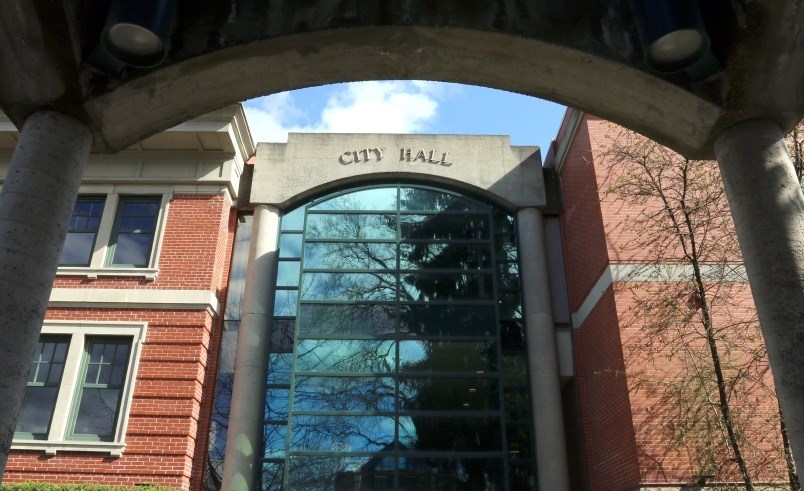Port Coquitlam council crunched the numbers and managed to whittle down this year’s tax increase while also allowing taxpayers to take a little longer to pay their taxes without penalty.
Tuesday, city council approved a tax bylaw that will see a 2.13% tax jump, costing an additional $41.17 on the average home assessed at $779,501.
Port Coquitlam Mayor Brad West said keeping taxes low and moving the 5% penalty for unpaid taxes (due July 2) from July 3 to Sept 16 will “provide breathing room for those who need it.”
“We also recognize we’re still in the middle of this pandemic: There are still people hurting financially, businesses are still closed and the need to support residents has not gone away,” West said.
When council considered a tax hike last November, it was looking at a 2.37% hike for the average property owner. But in discussions over the following months, staff and council looked at ways to reduce the tax burden — without cutting core services.
CITIES DELAY TAX PENALTIES DURING COVID-19 PANDEMIC
“As a council, we’ve set a direction that we do want to keep our taxes reasonable and modest and we’ve challenged our staff on a continual basis to look for ways to achieve savings or to find efficiencies,” West said. “The reduction here from 2.37% to 2.13% is a result of that ongoing work and also more information forthcoming in terms of assessments.”
Coquitlam, meanwhile, passed a budget with a 2.94% tax hike; Port Moody property owners are looking at a 3.55% increase on their tax bills in July. PoMo has also delayed the penalty until Sept. 15.
West said the city won’t suffer any loss of services with the slimmer tax hike, which follows on the heels of no tax hike last year. “We are not cutting our nose off to spite our face. We’re in an enviable position to support our residents while improving services and infrastructure,” West said.
However, the exact amount for each home will depend on how it compares to the average residential assessment, and whether the assessed value increased more or less than other properties.
According to the city, 2021 assessed values for residential properties went up an average of 6.4% including 3.41% for strata properties and 7.57%for single-family homes.
West said residents are encouraged to pay their taxes in full by July 2, if they can, as it will help the city manage its cash flow; however, he expects a number of property owners will delay paying if they can, judging by last year when about half of the city’s taxpayers took advantage of the break on penalties to delay payment.
With the tax bylaw now approved, PoCo taxpayers can expect to see their tax notices in the mail soon.
PoCo will spend $95.5 million on running the city including some rising operating, utility and other costs beyond the city’s control. Some new expenditures include:
• extra holiday recycling in 2021
• large item pick-up pilot program
• increases in snow removal
• city-wide litter collection
• free menstrual products in city facilities
CHANGE IN HOMEOWNERS GRANT APPLICATION PROCESS FOR B.C. RESIDENTS
As part of the annual property tax rates bylaw, the city must also set the tax rate to raise funds to pay the Metro Vancouver Regional District for its services, which include drinking water, sewage and solid waste management; regional parks; affordable housing; and air quality regulation.
This year, the tax rates to pay for these services will increase to raise $215,955 more for the regional agency, over last year. The impact of this will see the average single-family residential property assessed at $967,182 pay $54.55 in Metro Vancouver levies versus a charge of $46.67 in 2020.
Also new this year is a change in the homeowner grant application process.
The provincial government is now administering the grants and applications must be submitted online at gov.bc.ca/homeownergrant or by phone at 1-888-355-2700 rather than through the city.
As well, homeowners ages 55 and up also have the option of applying to defer their property taxes though gov.bc.ca/propertytaxdeferment.




